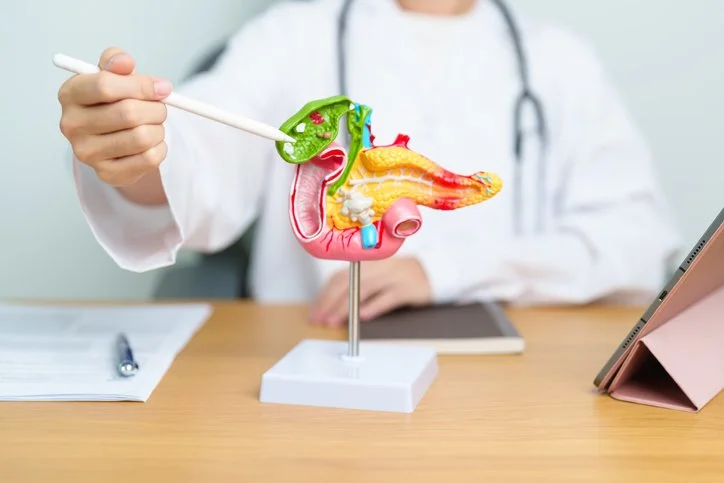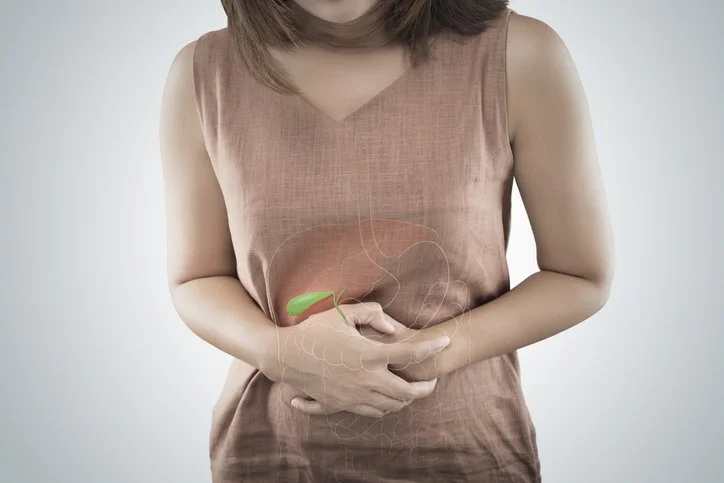Understanding Gall Stones: Types, Symptoms & Management
Gallstones, though small, can pack a painful punch. Understanding these tiny yet troublesome gallbladder formations is crucial for prevention and effective management.
In this comprehensive guide, we'll explore the different types of gallstones, their symptoms, pain management strategies, when to seek medical advice, and the array of treatments available.
Let's journey through the complexities of gallstones to empower individuals with knowledge for a healthier gallbladder.
Types of Gallstones
Gallstones come in two primary varieties:
Cholesterol Stones
Formed when there's an excess of cholesterol in the bile, these yellow-green stones are the most common type.
Pigment Stones
Dark brown or black pigment stones result from an excess of bilirubin in the bile.
Understanding the composition of gallstones is vital for tailoring effective prevention and treatment strategies.
Symptoms of Gallstones
Gallstones don't always make their presence known, but they can be intense when symptoms arise. Common signs include:
Pain
Typically occurring in the upper abdomen, gallstone pain can radiate to the back or right shoulder.
Nausea and Vomiting
Gallstone-related pain often triggers nausea and, in some cases, vomiting.
Jaundice
If a gallstone blocks the bile duct, it can lead to jaundice, causing yellowing of the skin and eyes.
Digestive Distress
Indigestion, bloating, and intolerance to certain foods may indicate gallstones.
Pain Management
Coping with gallstone pain requires a multifaceted approach:
Over-the-counter Pain Relievers: Non-prescription medications like ibuprofen can help alleviate mild pain.
Prescription Medications: In some cases, stronger pain medications may be prescribed for more severe pain.
Hot Compresses: Applying a hot compress to the affected area can relieve discomfort.
Positional Changes: Experimenting with different body positions, such as lying on your side, may help ease pain.
When to Seek Medical Advice
Specific scenarios warrant prompt medical attention:
Intense or Prolonged Pain: Severe or persistent pain could indicate complications such as a blocked bile duct.
Fever and Chills: These symptoms may signal an infection, a severe complication of gallstones.
Jaundice: Yellowing of the skin and eyes requires immediate medical evaluation.
Difficulty Breathing: If pain is accompanied by difficulty breathing, seek emergency care.
Treatment Options
Watchful Waiting
Asymptomatic gallstones may not require immediate intervention. Regular monitoring is crucial.
Medications
Certain medications, such as bile salt tablets, can dissolve cholesterol stones over time.
Laparoscopic Cholecystectomy
A standard surgical procedure to remove the gallbladder, often recommended for recurrent or severe cases.
Endoscopic Retrograde Cholangiopancreatography (ERCP):
Involves removing gallstones from the bile duct using endoscopy.
Extracorporeal Shock Wave Lithotripsy (ESWL):
Uses shock waves to break up gallstones, making them easier to pass.
Lifestyle Changes for Gallstone Prevention
Healthy Diet: Adopting a diet low in saturated fats and cholesterol can reduce the risk of gallstone formation.
Maintain a Healthy Weight: Obesity is a risk factor for gallstones. Losing weight gradually can lower this risk.
Regular Exercise: Physical activity aids in maintaining a healthy weight and promoting gallbladder health.
Conclusion
Gallstones may be small, but their impact can be substantial. With knowledge about the types, symptoms, and available treatments, individuals can take proactive steps for gallstone prevention and effective management. If experiencing symptoms or at risk, seeking timely medical advice is paramount. Remember, a well-informed approach to gallstones can pave the way for a healthier and more comfortable life.
For personalised advice and guidance, consult with your healthcare provider. You can book an online appointment with a 24/7 GP here for additional health and wellness insights.









